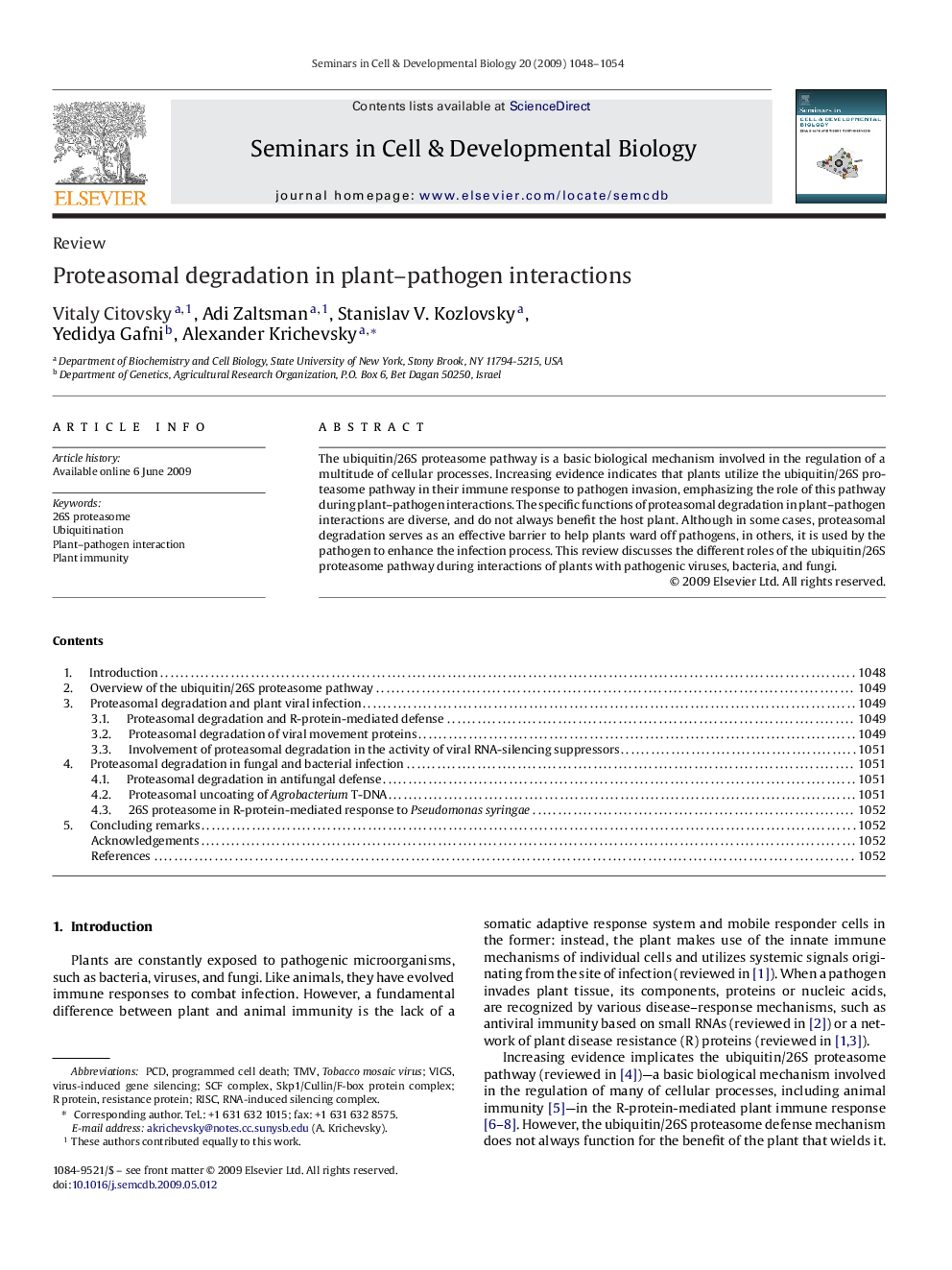| Article ID | Journal | Published Year | Pages | File Type |
|---|---|---|---|---|
| 2203013 | Seminars in Cell & Developmental Biology | 2009 | 7 Pages |
The ubiquitin/26S proteasome pathway is a basic biological mechanism involved in the regulation of a multitude of cellular processes. Increasing evidence indicates that plants utilize the ubiquitin/26S proteasome pathway in their immune response to pathogen invasion, emphasizing the role of this pathway during plant–pathogen interactions. The specific functions of proteasomal degradation in plant–pathogen interactions are diverse, and do not always benefit the host plant. Although in some cases, proteasomal degradation serves as an effective barrier to help plants ward off pathogens, in others, it is used by the pathogen to enhance the infection process. This review discusses the different roles of the ubiquitin/26S proteasome pathway during interactions of plants with pathogenic viruses, bacteria, and fungi.
